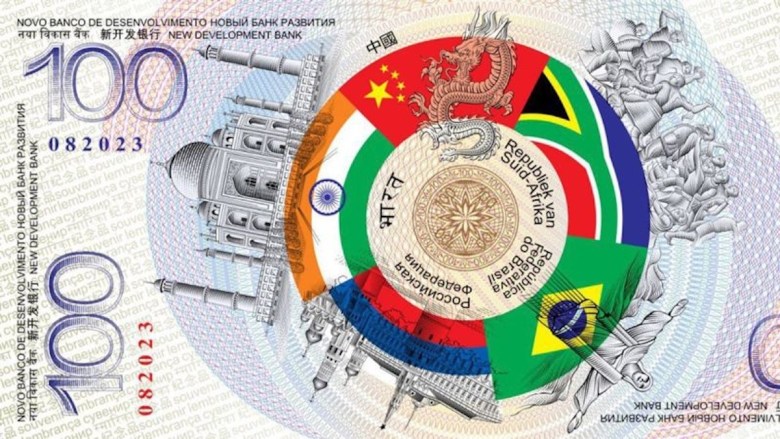Politics
BRICS+ Challenges Neoliberal Ideology, Reshapes Global Governance

The emergence of BRICS, comprising Brazil, Russia, India, China, and South Africa, alongside its expanding network of partner nations, signifies a pivotal shift in global governance. This coalition is not only advocating for economic sovereignty but is also presenting alternative models of governance that challenge the existing neoliberal framework. By establishing institutions like the New Development Bank and the Contingent Reserve Arrangement, BRICS aims to create a parallel financial architecture that counters the influence of traditional Western-led entities such as the International Monetary Fund (IMF) and the World Bank.
Neoliberalism’s Legacy and BRICS’ Response
Since the conclusion of World War II, the international system has been dominated by Western-driven institutions, which reflect the geopolitical landscape of the mid-20th century. For instance, the United Nations Security Council continues to grant permanent veto powers to nations like Britain and France, representing a combined population of fewer than 150 million, while populous nations such as India and Indonesia remain excluded from permanent membership. Efforts to reform these institutions have consistently stalled.
In response to these limitations, BRICS successfully launched the New Development Bank, which by 2025 had approved over $30 billion in projects focused primarily on infrastructure and sustainable development. This initiative underscores BRICS’ ambition to redefine the financial landscape, aiming for a more equitable distribution of resources and influence.
Geopolitical Shifts and BRICS Integration
The integration of BRICS has faced challenges; however, significant external events have catalyzed its evolution. The reelection of Donald Trump as President of the United States in 2016 played a crucial role. His administration’s trade policies, including imposing 50% tariffs on Indian goods, prompted India to strengthen its diplomatic ties with both China and Russia. This shift has further solidified BRICS as a pivotal platform for non-Western cooperation in both economic and security matters.
The ongoing war in Ukraine has also transformed international relations, with Western nations framing their stance as a defense of the “rules-based international order.” Conversely, BRICS members view the conflict as indicative of a neoliberal strategy focused on economic expansion. Following the dissolution of the Soviet Union, Russia embarked on a path of economic liberalization under Boris Yeltsin, which led to disastrous socioeconomic outcomes. The subsequent administration of Vladimir Putin has reversed many of these neoliberal policies, asserting state control over vital industries and shifting towards greater economic sovereignty.
As NATO expanded eastward, particularly with the decision to include Ukraine and Georgia, tensions escalated. Sanctions imposed on Russia, described by U.S. officials as “sanctions from hell,” were intended to bring about regime change but instead resulted in Russia deepening its economic ties with non-Western allies, including China and India.
European nations, traditionally aligned with U.S. policies, are now grappling with the limitations of their Russia strategy. As they support Ukraine without direct military intervention, they find themselves enmeshed in a prolonged conflict that raises questions about their military readiness and economic stability. The shift from social spending to military investment reflects a broader trend in which Europe, isolated in its defense of the neoliberal project, faces scrutiny over its policies and the sustainability of its commitments.
The decline of neoliberalism is paralleled by the rise of nationalist leaders like Trump and Putin. Their policies, though rooted in different ideologies, resonate with BRICS’ objectives of promoting economic sovereignty and skepticism towards globalization. Leaders within BRICS, such as Luiz Inácio Lula da Silva, Narendra Modi, Xi Jinping, and Cyril Ramaphosa, employ similar populist narratives to advocate for alternative institutions and governance models.
BRICS is progressively redefining international relations by creating new financial institutions, promoting trade in local currencies, and advocating for a multipolar world. Its influence is not aimed at replacing entities like the G7 or NATO, but rather at diversifying global governance structures to incorporate the voices of the Global South. In this context, BRICS symbolizes a significant transition from a neoliberal order towards a more pragmatic and multipolar international system, positioning itself as a key player in shaping the future of global governance.
-

 Lifestyle3 months ago
Lifestyle3 months agoHumanism Camp Engages 250 Youths in Summer Fest 2025
-

 Sports3 months ago
Sports3 months agoDe Minaur Triumphs at Washington Open After Thrilling Comeback
-

 Business4 months ago
Business4 months agoKenvue Dismisses CEO Thibaut Mongon as Strategic Review Advances
-

 Sports4 months ago
Sports4 months agoTupou and Daugunu Join First Nations Squad for Lions Clash
-

 Top Stories4 months ago
Top Stories4 months agoColombian Senator Miguel Uribe Shows Signs of Recovery After Attack
-

 World4 months ago
World4 months agoASEAN Gears Up for Historic Joint Meeting of Foreign and Economic Ministers
-

 Business4 months ago
Business4 months agoOil Prices Surge Following New EU Sanctions on Russia
-

 Entertainment3 months ago
Entertainment3 months agoDetaşe-Sabah Violin Ensemble Captivates at Gabala Music Festival
-

 Health3 months ago
Health3 months agoNew Study Challenges Assumptions About Aging and Inflammation
-

 Entertainment3 months ago
Entertainment3 months agoBaku Metro Extends Hours for Justin Timberlake Concert
-

 Business4 months ago
Business4 months agoU.S. House Approves Stablecoin Bill, Sends to Trump for Signature
-

 Top Stories4 months ago
Top Stories4 months agoRethinking Singapore’s F&B Regulations Amid Business Closures









